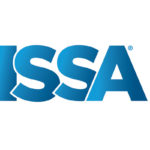News
ISSA Advocacy Weekly Recap—August 30, 2019
August 30, 2019
Welcome to the ISSA Advocacy Weekly Recap! This is ISSA’s regular roundup of the latest public policy-related issues impacting the cleaning industry.
Judge Invalidates NYSDEC Household Cleansing Product Information Disclosure Program
In a joint statement responding to the New York State Supreme Court’s decision, Melissa Hockstad, president and CEO of ACI, and Steve Caldeira, president and CEO of HCPA, said: “For more than two years, industry stakeholders came to the table in New York with clear and reasonable concerns and a readiness to collaborate to arrive at a responsible solution. While the goal is to establish a federal law for ingredient communication, we hope this decision will prompt the New York State Department of Environmental Conversation (NYSDEC) to work with us on a comprehensive, collaborative, and transparent policy that is in alignment with other states, such as California.”
Is Your Company Well-Positioned to Manage Risks Associated with Relocating Supply Chains?
According to GreenBiz, “Companies invest a significant amount of time and money to establish and maintain a secure supply chain, and over the long term such investment typically results in fewer production disruptions and reduces a company’s exposure to regulatory, social, and environmental and reputational risks, among others.” Sebastien Breteau, CEO of QIMA, explained that “Quickly relocating supply chains intensifies risks related to child labor, human trafficking, environmental violations, and dangerous working conditions.”
Tariff Uncertainty is Even Worse Than the Tariffs Themselves
Importers of products say that the uncertainty of trade policy is the hardest part for them to manage. According to Forbes, “Many of these companies work six or nine months out and trying to plan that far in advance is virtually impossible given the constantly changing directives.” Uncertainty about trade policy affects “how many people they will hire, the amount of product they sell, and the sales taxes associated with that rate of sale and their capital spending,” which are all “factors that have the potential to drive the country into recession.”
Canada’s New Workplace Harassment Law Comes into Effect September 1
According to the Financial Post, multiple amendments to the Canada Labor Code (CLC) will be taking effect on September 1, and will directly impact the 18,000 federally regulated employers and 900,000 employees governed by the legislation. “‘The workplace harassment regulations will be the real game-changers for many employers who will have to completely reassess how they manage harassment and violence in the workplace,” says Bill Hlibchuk, an employment and labor law lawyer at Norton Rose Fulbright Canada LLP.
Other links of interest:





